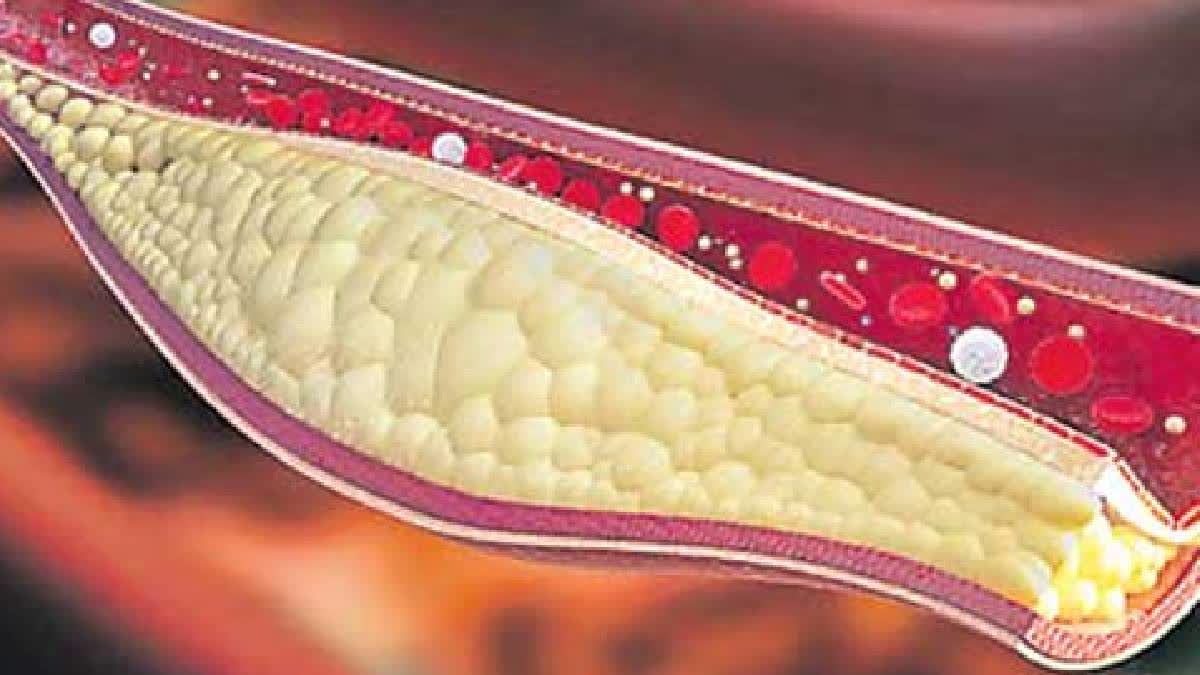Hyderabad: The Cardiological Society of India (CSI) on Thursday issued guidelines for the first time in India to help control high cholesterol (also known as dyslipidemia) and manage the abnormal fluctuations in blood cholesterol levels.
Dyslipidemia is a medical condition where one has high total blood cholesterol, increased level of low-density lipoprotein or LDL-cholesterol (bad cholesterol), high triglycerides and decreased levels of high-density lipoprotein or HDL-cholesterol (good cholesterol). Such a condition increases risk of heart-related diseases namely cardiac arrest and stroke as well as other serious health issues.
CSI president Dr Pratapchandra Rath said cholesterol is like a silent killer and the worse thing is that its symptoms are not seen in the initial phases like that of high blood pressure and diabetes. The guidelines are aimed at ensuring that the cholesterol levels in the blood are under control.
Newly issued guidelines:
People having a family history of a heart or circulatory disease or high total blood cholesterol levels (hypercholesterolemia), should have their lipid profile test done at the age of 18 or even earlier. This test measures the total amount of cholesterol in the blood and the level of good cholesterol.
Know your cholesterol levels:
The low-risk individuals should aim to maintain LDL-C levels below 100 mg/dL and non-HDL-C levels below 130 mg/dL.
People at high risk (diabetes, hypertension patients) should be careful to keep LDL-C levels under 70 mg/dL and non-HDL-C levels under 100 mg/dL.
Those at the highest risk (stroke victims, heart attack victims, chronic kidney disease sufferers) should ensure to restrict the LDL-C levels below 55 mg/dL and non-HDL-C levels below 85 mg/dL.
Maintaining cholesterol through lifestyle and proper diet:
- Sugar and carbohydrates should be taken in lesser amount in food.
- Regular yoga and exercise should be included in the daily routine to maintain heart health.
Read more
Low-fat diet may help reduce fatigue in people with multiple sclerosis



